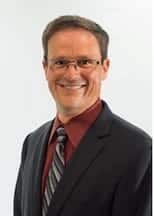How Enthusiasm Can Improve School Growth in a Large District
When people say things are bigger in Texas, they might just as well be describing Dr. Bret Champion’s enthusiasm. The Superintendent of Klein ISD in Texas has a committed passion for his job, his district, his teachers and his students that’s palpable from the moment you engage in conversation.
Bret’s personality fits in at Klein ISD, which is a large district just north of Houston that covers nearly 90 square miles and has a student population of more than 50,000 kids in 44 schools. Being in charge of a district that size is a tall order, but Champion brings over 23 years of experience to the table and seems more than fit for the challenge.
Just because the district is significant in size doesn’t mean that Bret is satisfied with merely maintaining the status quo. He is a hands-on leader and not afraid to take suggestions and feedback from educators, students, and the community on changes that will result in everyone’s goal – improved student outcomes.

Bret and I talked about the changing role of the superintendent, from mystery man to the face and voice of the district. Progressive changes such as digital portfolio technologies to improve and potentially replace letter grades were discussed. Bret Champion believes in accountability and supports educators who take the initiative and challenge the over-emphasis of standardized test results.
Preparing a student body for success takes a collective personalized learning effort that testing alone has difficulty measuring. Efforts by the Texas Performance Assessment Consortium (TPAC) are bringing options to districts like Klein ISD. Bret discussed community-based accountability systems and how the TPAC districts are working to empower students, parents, and educators to build learning environments that honor and support student achievement.
Like his name, Bret makes it a point to acknowledge and champion the successes of all students, teachers, and administrators of his district.
Interview
Dr. Berger: Bret, I’ve really enjoyed getting to know the breadth and depth of superintendents across the U.S. and the changing of the guard. I’ve found that superintendents are different today than they were when you and I were growing up in public education. We’ve gone from being city managers at an arm’s length with our communities to really being embedded in everything from practice to PD and support.
How has that changed in your 23 years in education in two different districts and there at Klein? How has it changed?
Dr. Bret Champion: It has certainly evolved and changed. I was just talking about the great and rich history of long-tenured superintendents in Klein ISD. One of the interesting things about the district is that a lot of folks have been there with those folks. And as the superintendent’s role has changed, some of the folks remember some of the classic superintendent things that were done.
It’s different now. It is like this constantly moving thing and people are like, “Wait a minute, we need a checklist on everything that we’re doing because we need to know exactly what’s happening.”
Now we’re in an era where feedback is so important and critical. Getting out there and listening and then acting on that is not only required but it’s expected. Our staff, our community, and our students have an expectation for being listened to and that their voice matters.
I think it has evolved into this. That wasn’t always the case. I grew up in a very small town and we would occasionally get a letter, like when the band did something the band director would read that letter from the superintendent. We were kind of like, “Who is this mystery guy?”

We’ve been working to take the mystery out of what this job is. Our communications lines have expanded both communications in and communications out.
To address your point about being imbedded in the work, I’m here in my office and behind me is a calendar of our work through a new shared vision in Klein ISD. I am involved in every step of this piece that’s behind me. There’s a team that’s doing the work, but I’m involved in all of that as it moves forward.
DB: Let’s talk a little bit about the expanded communication ─ not only within a district like Klein but also district to district or within districts ─ and new approaches to try to bring better resources, thought leadership, and mind share.
I know that Klein is a part of TPAC. Tell me a little bit about what it’s like when you’re deciding how to participate in something like the Texas Performance Assessment Consortium in a way that not only can you learn, but you can also share and do some really good things.
BC: Frankly, one of the most challenging parts of the job is trying to figure out what do we say yes to and what do we say no to. There are so many rich opportunities that are available to us.
That’s why one of the first things that we’ve worked on since I’ve come to Klein ISD has been making sure that we’re all on the same page with a shared vision. Then we take that shared vision, and everything has to relate strongly to it. If it doesn’t, we have to say no to it.
The TPAC is certainly a great example of that. We believe strongly in accountability. We also believe there’s a better way to do accountability than what we currently have. We want our voice to be part of that work and we want to learn from others.
That is a very clear task. Something we clearly heard from our community was, “We want to hold you accountable. We want to know how you’re accountable.” But we don’t want it just to be about the standardized tests.
That says very clearly that we have to be involved in things where our voice is heard in opportunities like that.
DB: How is the tone and tenor of formative assessment changing the narrative regarding standardized tests? How are we appropriately not only documenting student learning but also communicating?
BC: It’s so interesting to be part of the conversation as we think about what assessment is, what its purpose is, and how we use it to make quality decisions.
So much of our system is aligned to what many brilliant folks have called “post-mortem work” where everything is over and we ask “How did we do?” You’re assessing the learning that has already occurred.
In reality, we have got to do a great job with that formative assessment ─ the assessment for learning ─ as we move through the process.
And what’s incredible, and not surprising, is that quality teachers have done this forever. Even if it’s just in their head, they’re constantly evaluating where each student is, where we need to move faster, and where we need to slow down.

So it’s really working to formalize that and to ensure that our teachers own that. We can stand and preach about formative assessment from central office all day long, but if there’s not clear grassroots and teachers holding on to it, it won’t go anywhere.
We need to have data in order to make quality decisions so that ultimately, whenever there is an assessment that is after the learning, we should know exactly where that’s going to land.
DB: Isn’t there a secondary layer to that, when we’re talking about engagement if we can solve the conundrum that you’re discussing. We’re doing a couple of things. One, we’re providing a level of engagement and understanding in a very conscious way with teachers and students, and, ultimately, families as well. Isn’t it a bit of a feedback loop that ultimately provides support in a world where schools and teachers feel isolated?
BC: That’s right. I appreciate that you brought up students and families because I left out a huge and important piece of this. The reality is that we don’t exist for teachers teaching; we exist for students learning.
So in terms of data and how we use formative data, it has so many ways that we use it. Most importantly, it’s so that a student knows where he or she stands in regard to the learning that is occurring.
Secondarily, we have teachers who need to use that data to make decisions about “Where do we move next?”
Thirdly ─ but equally important ─ is parents knowing, “What is my kid learning?” This is an interesting struggle.
We’re in the middle of finalizing our updated strategic plan for the district and there’s this interesting tension between classic grades and the importance of that ─ and there’s absolutely importance to traditional grades. And there’s incredible importance to some sort of system where we can see what the learning expectations are so that everyone understands exactly where each kid is, which looks very different.
That’s a completely different approach to the way we’ve approached assessing the learning in a classroom.
This is an interesting tension to be in right now. So we’re starting small. In Klein ISD, for example, we’re starting with a kindergarten report card that looks like it’s skills based. And that makes perfect sense.
But we’re wondering, what does that look like as we move that forward for through the system? How do we ensure that there’s quality information being generated so we can see where our students are and, most importantly, so our students can see where they are?
DB: It makes me wonder about the bottom-up pressure that you may or may not feel. I’ll give you an example.
I have two young children who are in pre-school/daycare. Now, with curriculum, it’s not what it was in the late seventies or early eighties. Just for myself and my family, we have an experience where we have a feedback loop utilizing technology and conversations about what they’re doing. And we’re documenting that.
It makes me wonder about when they grow up and they go into public K-12, does that put pressure on our local district to make sure that those systems are in place, whether they’re the same or different?
There’s a level of expectation. We’ve already adopted it. We know ─ at nighttime, when we’re reviewing with our children at dinner ─ what they did.
BC: Exactly. I think it puts a very healthy pressure on our system. As we get more parents who are engaged and who want to understand what’s going on, that’s where a learning management system can be invaluable, as kids get older and parents have an ability to see what their kids are working on.
Think about the power of a digital portfolio, which is another piece of our strategic plan as we’re moving forward. Think about a kid who enters our system. In Klein ISD we say every student enters our system with a promise and exits with a purpose. And if we’re going to achieve that shared vision, then we need to be able to document what that movement looks like.
Think about a digital portfolio. Your kid enters in kindergarten and begins to build a body of work so that when the student exits the system, we actually see the progression and growth that’s occurred. Then, parents are able to have a good sense of, discreetly, “What are they working on today?” but also take a bigger picture view.
Sometimes we’ll get pressure to accelerate kids and, sometimes, that’s absolutely appropriate but sometimes I’m wondering if we all can see the bigger picture like “Where is this kid heading ─ in what pathway?”
We have not done a good job of communication as to what those pathways are at the K-12 level so that parents understand that there is a long-term gain that we’re after. But if we had an ability to really show growth and how these things are aligning along the pathway, I think that would be incredibly beneficial.
DB: Let’s go into that but from the teacher’s side of it. I would imagine that one of the daily opportunities for you is to figure out how to communicate what you’re talking about in a way that is supportive and inclusive of the educator. Oftentimes, sadly, we marginalize and forget the teacher at the end of an implementation. We don’t include them into the conversation and they can be the biggest and most important advocates we have.
BC: We know from research and from just living it every day that teachers are the number one thing that make or break a kid’s education in K-12. And so, it’s really unfortunate when we forget to bring teacher voices and teacher ownership into everything that we’re doing. To that point, it’s a unique place right now, because in Klein, we’re in a middle of this formative work at the district level ─ shared vision, strategic planning, guiding documents.
In the development of those guiding documents, we knew that if we were going to define what high-quality teaching looks like in Klein ISD, the people who need to be defining that are our teachers.
And so, we had a design team of teachers develop the guiding document that we now have called “Klein ISD’s Definition of High-Quality Teaching.”
I would encourage you to watch ─ I just did a video about that with a great teacher this week. If you go to our YouTube channel, you’ll see it.
But one of the conversations that they had in that meeting was the idea of results-focus. Teachers are so sick of just worrying about standardized tests. They’re sick of it. And I don’t blame them.
And so, there was this big controversy of “Do we say results-focused?”
And where they ultimately landed is ─ they said, “Absolutely, we are results focused. We should hold ourselves accountable to the results of what we’re calling our ‘profile of a learner.’ Are we getting those results? Are our kids and students walking out of our classrooms looking like that profile of a learner?”

Teachers very much understand that there is a result that we’re trying to get to. I believe that there is an easy slope to slide into which is “Central Office creates these great things and teachers are like, ‘Are you nuts?’”
That’s why you have to start with the voice of the teachers at the front end ─ and also the voice of the students. We can’t lose sight of that. One of the best things that happened to us with our strategic plan in the last couple of days is that we had students come in. The adults had all these great ideas and the kids literally looked at us and said, “Are you nuts? This makes no sense in our current system.”
We realized that if we’re going to get to what we’re aspiring to ─ which is up here ─ we can’t just jump up there. We’ve got to be able to build a culture and build a system that moves it up that way. And we actually modified what this year was based on the student feedback.
Yes, all of those voices are so important in our work.
DB: We live in a world of data ─ our personal lives, our social lives, our professional lives ─ especially in education.
I think a simple example that speaks to my affinity for sports is that we have all this data after a game is done and you’ll hear coaches and prognosticators talk about that one piece of data that really told them the story of how the game was played or who really excelled.
In your role as superintendent, when you close down at night, what variable are you looking at that we don’t talk about that much but is really an indicator that you are seeing growth? We’re not making leaps but we understand that if we’re really forecasting, this is a really good upward trend that we’re seeing in our district. What’s that variable that you hold dear?
BC: There are a couple of things. Your question is fascinating because I just walked out of a principals’ meeting where I literally looked at the group and said, “If you could have one measure ─ only one measure ─ what would that be?” It was fascinating to hear what that conversation was.
I’m an old elementary guy. I’m not going to limit myself to just one. At the elementary level, I can tell you that it’s where we’re ensuring that students are reading at their appropriate literacy rate by third grade. Where are we in terms of growing their numeracy, building those basic skills and making sure we’re hitting those at the middle-school level. What percentage of our students are engaged in extracurricular and co-curricular activities at all of our levels? How are we making connections there? And then, ultimately, what percentage of our students are engaged and successful in completing our most rigorous courses?
If you take those pieces, I believe that you get a profile of where we’re heading. We’re in the season of AP Testing. And I was so excited that at one our high schools, a principal stood up and he said, “Our celebration is we had 90 kids showing up on Friday nights and Saturdays for college prep.” They were getting ready for their AP exams and the district has done some great things to support those exams.
That kind of data is what keeps me realizing that we’re moving forward because that takes teachers doing stuff and they’re owning it; students are showing up; and then, it’s really about our most rigorous course. I get fired up about stuff like that.
DB: I can tell and I think that that’s what’s really needed.
Let’s say that you’re speaking to students, and you pick the age group. Your objective before you walk on the stage is that you really want to share with them the power of education as a profession. Thinking of it as an opportunity.
I think that we don’t do a very good job of marketing all the amazing things. You and I ─ in this interview ─ are interfacing in education in different forms and fashions. We would be saying that we’re working in education. In the same way that there are teaching positions, there are leadership positions, and there are people that service education.
How can we do a better job of talking about the excitement that get you and I passionate about it in a way that invigorates kids to look around them in the middle of their own education?
BC: That’s a great question because I think we’re terrible ─ in education ─ about marketing the fact that this is a wonderful opportunity. My parents are both public educators and when I was growing up, the mantra that I followed was “I will never be in public education” because it was looked down upon.
And then, I was an English major and I was like, “Now, what?” Thank heavens, Teach For America was looking for teachers, and I discovered the passion.
The passion I discovered and the way that I would market this to everybody is “What other profession do you have where you have the opportunity to change the world every day? Every day, you have an opportunity to hit the yuckiness of the world and make a U-turn occur. Every time we move a kid in a quality direction, we’re changing the world.”
Whether I’m talking to maintenance workers or custodians or our cafeteria workers, we can all connect to that. We now connect this idea of recognizing every student entering with a promise and exiting with a purpose. World transformation is what we’re talking about.
That’s how I would sell it. What other profession can you say that you can change the world every day?
DB: Well said. For those who are watching or listening, your last name being “Champion” is very fitting and I’m sure it’s just a great point of inspiration for people.
About Dr. Bret Champion
 Dr. Bret A. Champion became Klein ISD’s Superintendent of Schools on July 1, 2016. He was the former superintendent for Leander ISD. His 23 year tenure in Leander ISD included positions as teacher, assistant principal, principal, and assistant superintendent.
Dr. Bret A. Champion became Klein ISD’s Superintendent of Schools on July 1, 2016. He was the former superintendent for Leander ISD. His 23 year tenure in Leander ISD included positions as teacher, assistant principal, principal, and assistant superintendent.
Dr. Champion was a member of the second corps of Teach For America program, which recruits and trains teachers to serve in areas with persistent teacher shortages. His first teaching positions were in Houston, Texas, and Baton Rouge, Louisiana. Champion received his Doctorate in Education (Ed.D.) from the University of Texas, his Master’s in Education (M.Ed.) from Texas State University, and his Bachelor of Arts in English Literature from the University of Houston.
Champion’s wife, Marcee, is an adjunct professor with the Lone Star College System and prior to that, she was an adjunct professor with Austin Community College. Their sons, Alan and Nicholas, are proud public school graduates and are attending college.
Follow Dr. Bret Champion on Twitter





